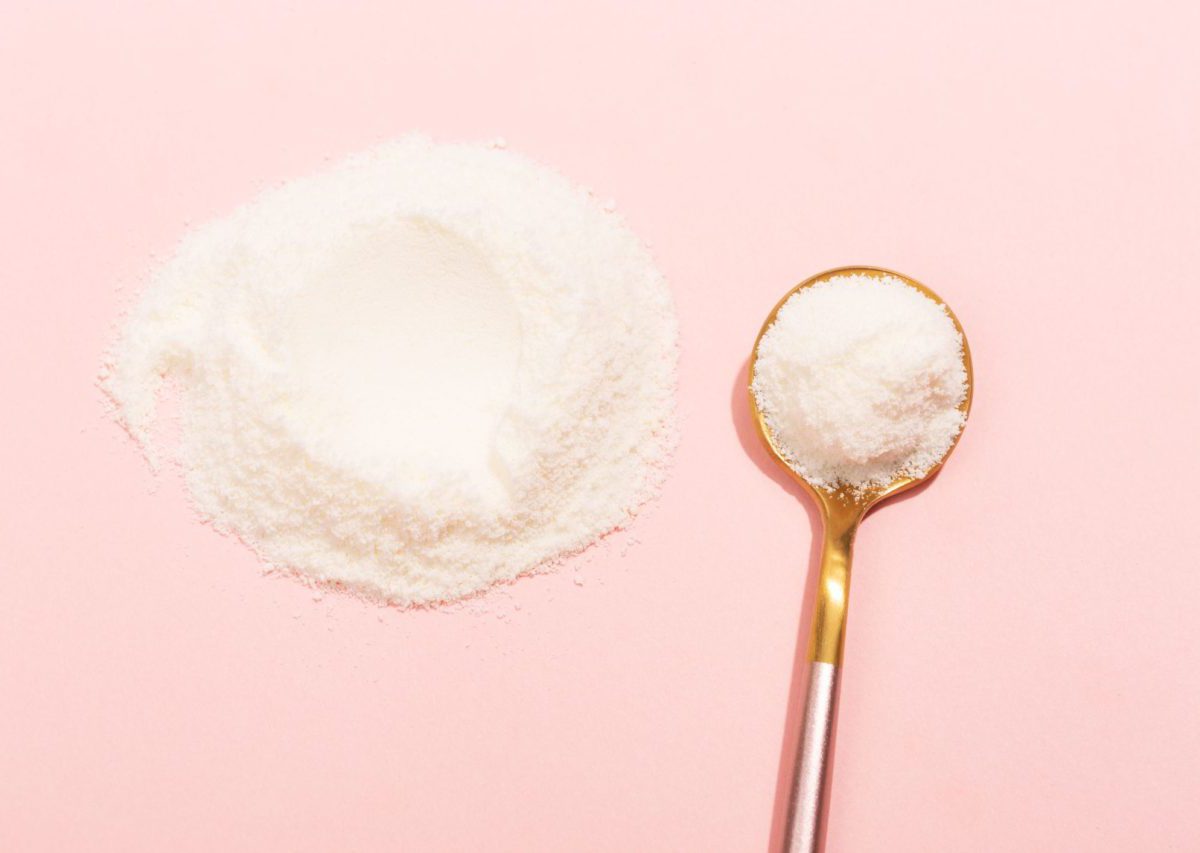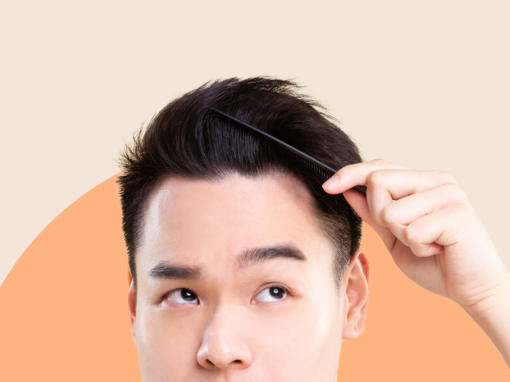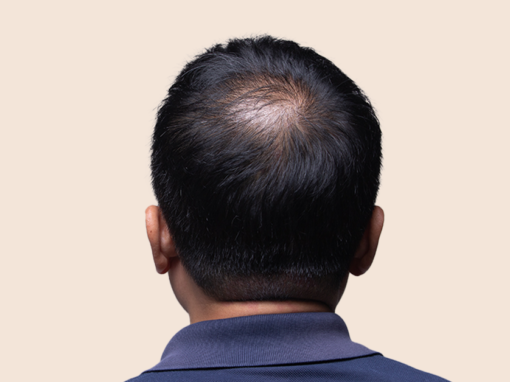Collagen is one of the most hyped ingredients in the haircare world at the moment. But, the real question is does collagen really work for hair? A major component in connective tissues, collagen makes up much of several different body parts, including your hair, skin, nails, muscles, tendons, ligaments and blood vessels. Collagen makes up 75% of your skin’s dry weight and 30 percent of your body’s protein mass. With that said, collagen is definitely the most abundant protein in the human body.
However, your body naturally tends to produce less collagen as you grow older. Couple this with sun damage and you may experience some classic signs of ageing. Signs of collagen loss include hair loss, flaky scalp, itchiness and more. For these reasons, more and more adults are choosing to incorporate collagen into their daily hair care routine. Below, we’ve got all the information you need to know about collagen.
Firstly, Why Are Collagens So Popular?
Mainly, they are popular, because they have a number of benefits for our skin and hair. Collagens can help to maintain skin elasticity and glow. In fact, scientific research shows that collagen can improve the health and appearance of your skin. Researchers have also shown that collagen has the ability to decrease joint pain, and increase muscle mass for athletes who consumed collagen supplements right after their workout.
How Effective Are They in Aiding Hair Health?
It is unclear, however, as to whether collagen can have the same effect on your hair. Some of these popular collagen-related hair questions include:
- Can collagen mitigate hair loss?
- Will collagen prevent your hair from turning grey?
- Does collagen help reduce the risk of male pattern baldness (MPB) especially if it is due to a genetic predisposition?
Don’t worry, to address these questions, we have broken down some of the hair-collagen theories. This will help you to understand more on how they can actually help manage your hair loss effectively. Buckle up, ladies and gentlemen, for this is going to be a hell of an interesting ride!
Theory #1: Amino Acids in Collagen Act as Building Blocks for Thicker Hair
The prevailing hypothesis on collagens effectiveness in treating hair loss relates to amino acids. Collagen contains amino acids that help with keratin production. Keratin is a structural protein which promotes the growth of thick and healthy hair. The three primary amino acids that make up collagen are glycine, proline and hydroxyproline. Your hair, on the other hand, consists of keratin, and proline, amongst other amino acids.
When you consume a collagen supplement, your body breaks them down into peptides of two or three amino acids. These amino acids, namely proline and glycine, promote the development of hair protein. The same two amino acids also strengthen the skin around the roots of your hair, thus stopping your hair from shedding as easily. They can also prevent hair follicle damage and greying of your hair.
However, we require more research to determine if increasing collagen intake equates to more keratin. Currently, there is insufficient research to conclude that more collagen means thicker and healthier hair.
Theory #2: These Peptides Fight Free Radical Damage to Hair Follicles
Another theory why hair loses strength as you age is because of the ”war” between free radicals and your body’s antioxidants. Free radicals are highly reactive molecules that cause damage to your cell’s proteins, DNA and lipids. When it comes to hair loss, certain research suggests that free radicals could damage your hair follicles and impair collagen production. However, what people do not know is that free radicals are naturally produced in your body. Your external environment and lifestyle can either accelerate or slow down this free radical production process. Factors that accelerate free radical production are exposure to UV rays, cigarette smoke and other pollutants.
Antioxidants are chemicals that your body produces to mitigate or prevent the effects of free radicals. Like collagen, antioxidants also recede in production levels as you age. Antioxidants are also able to promote and improve fibroblasts, a cell in connective tissue which induces natural collagen production in our bodies. As such, taking these supplements may help with collagen loss in the body by boosting its natural production process. To ascertain if antioxidant supplements can prevent free radicals, more research needs to be done. This includes those that could cause significant damage to your hair follicles.
Theory #3: They Can Also Slow Hair from Greying
Another popular theory is that free radicals are the direct cause of greying hair, also known as the “Free Radical Theory of Greying”. This may be due to your hair naturally losing pigments as you age, but free radicals can accelerate this process in your body.
This theory implies that free radicals destroy the cells that produce pigment in your hair. And that if your body does not have enough antioxidants to help withstand the destruction caused by free radicals to these cells, your hair will slowly begin to turn grey. In summary, increasing your antioxidant consumption may slow the greying process. Although, much more research is needed to understand the effects of antioxidants on the greying process.
Theory #4: Collagen Peptides Prevent Your Hair from Thinning
As we grow older, our bodies will start to produce less collagen. This process is inevitable. As a result, the dermis (the layer of skin which houses blood vessels, oil and sweat glands, nerves, hair follicles, and other structures) will start to become weaker. This causes hair follicles to shrink, and in turn leads to hair loss.
However, collagen supplements have shown to be able to improve the elasticity and hydration levels of your skin. For that reason, some people believe that collagen supplements will help prevent hair thinning as they grow older as well. Again we need more research to determine if the effect of collagen also helps to prevent hair thinning.
All These Aside, We Still Need More Research!
To put it simply, collagen is a building block for a number of different things in your body, which includes your lustrous mane of hair. As your body produces less collagen with age, it is natural to seek alternative methods to prevent hair loss. Past research findings suggest that collagen plays an active role in maintaining the health of your hair. However, a lot more research still needs to be done to determine if increasing your collagen intake can also help to prevent hair thinning, greying, and damage to your hair follicles.


